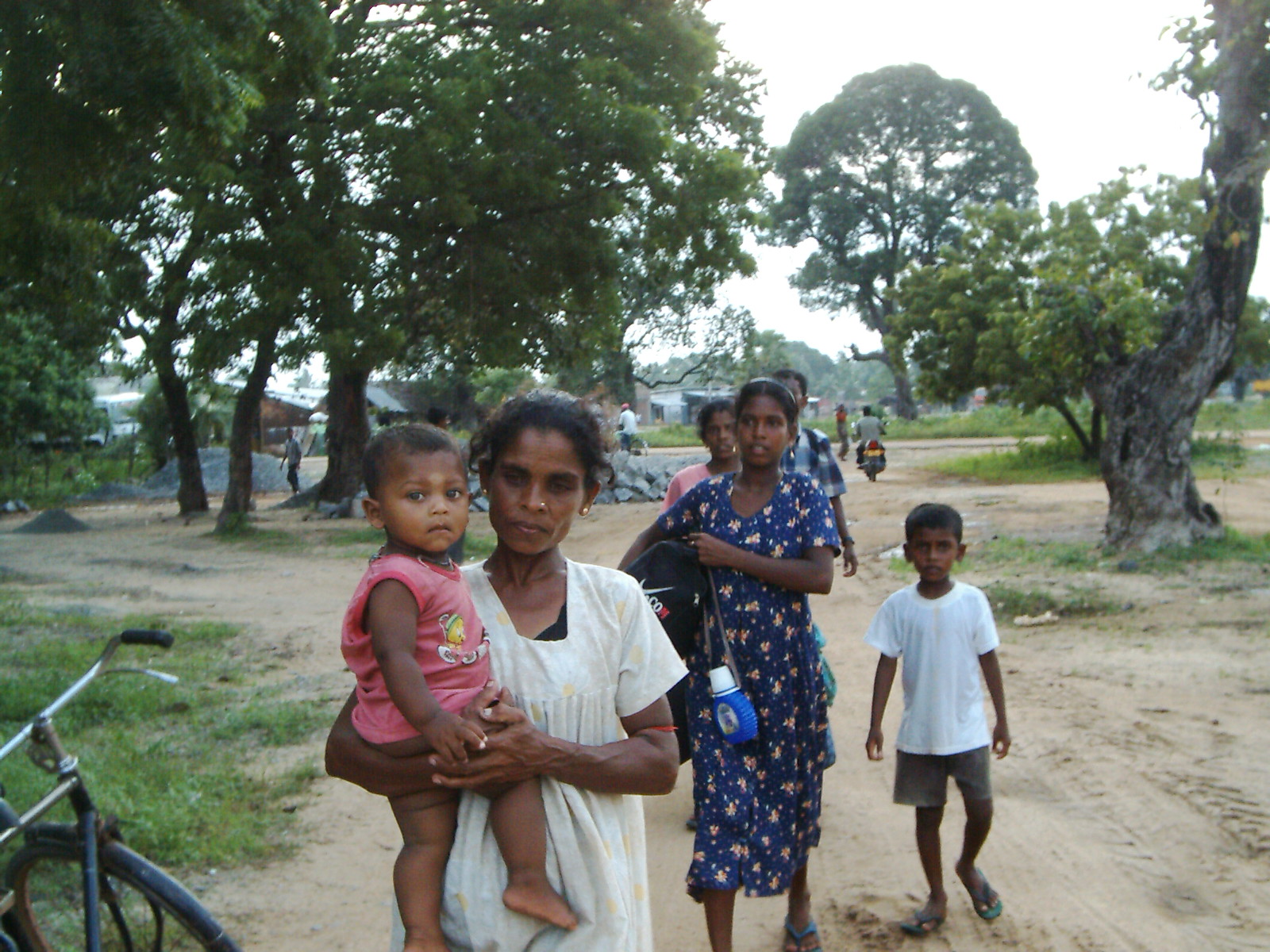 |
| Internally displaced refugees are unable to return to their homes, but Sinhalese are being settled in traditionally Tamil areas in the East |
Sri Lankan was once again accused of colonising the Eastern province under the guise of resettlement. Parliamentarians of the largest Tamil party in the parliament this week again accused the government of Sinhala colonization of the Eastern province.
Whilst announcing plans to develop the eastern province and seeking international aid for the purpose, Sri Lanka has continued to militarise the province by involving security forces in administration of the province and aid distribution, the Tamil National Alliance (TNA) charged.
In its latest attempts to colonise the Tamil dominated eastern province, the Sri Lankan state has employed Sinhala prisoners at Maangkerni cashew plantation owned by Sri Lanka Cashew Corporation (SLCC), whilst the locals who were previously employed there have been languishing without any income for the past many years, Batticaloa District TNA parliamentarian S. Jeyananthamoorthy charged in a letter addressed to President Mahinda Rajapakse.
The move to bring on Sinhala convicts will result in Sinhala colonization in future and exacerbate ethnic conflict in the area, Jeyananthamoorthy pointed out in his letter.
"The cashew plantation located in Maangkerni, Batticaloa District, has been long abandoned and is in an unusable state. There is a very large SLA camp constructed at that site and as a result the entire plantation has been destroyed,” he notes.
“Those previously employed in the plantation are languishing without any income for the past many years,” he wrote.
"Though it is not an appropriate step to be taken under the existing conditions, SLCC has decided to reactivate cashew cultivation in that location. At the same time I learn that the cashew corporation has entered into a contract with the Prisons department to employ Sinhala convicts at this location. I also learn that this scheme is being implemented by your advisor and parliamentarian Basil Rajapakse.”
“In Vaakarai region, there are still a large number of former employees of the Sri Lanka Cashew Corporation,” he wrote, pointing out that they continue to be unemployed.
“Apart from this, when such an employment scheme is implemented, priority should be given to the youths residing in the region. To bring in Sinhala prisoners to be employed here, without taking into consideration these factors is an undemocratic act and should be condemned.”
“This move could be a prelude to permanently keep these convicted prisoners here in order to create Sinhala colonization. In addition, allowing these convicts to move around freely in this Tamil area will instil fear among the Tamil population and may lead to ethnic conflicts in the future,” he notes.
In September this year, Tamil parliamentarian and TNA parliamentary group leader, Rajothayam Sampanthan, brought to light similar attempts by the Sri Lankan state to colonise the eastern province in the Trincomalee District.
He charged the government was giving in to the demands of the extreme nationalist Jathika Hela Urumaya (JHU), a Buddhist monk party, during an address to the Sri Lankan parliament.
The JHU plans to carve out a Sinhala district between Trincomalee District in the Eastern Province and Mullaiththeevu in the Northern Province, aiming to split the geographical contiguity of the Tamil homeland, he alleged.
Successive Sri Lankan governments have already systematically colonized the traditional Tamil areas of Manalaaru (named Weli Oya in Sinhala), Pathavikkulam (named Padaviya in Sinhala), Thiriyaay, and Pulmoaddai between the Mullaiththeevu District and the Trincomalee District, he noted.
The areas of Kokkilaay, Thennamaravaadi and Thannimurippu (named Janakapura in Sinhala) are militarized zones.
However since the demerger of the Northern and Eastern provinces earlier this year, the Sri Lankan novernment has taken steps to create a new Sinhala district consisting of the above areas.
The aim is to partition the Northern and Eastern provinces, in order to fulfil its pledge given to the JHU during the last Presidential elections, Sampanthan said at the time.
